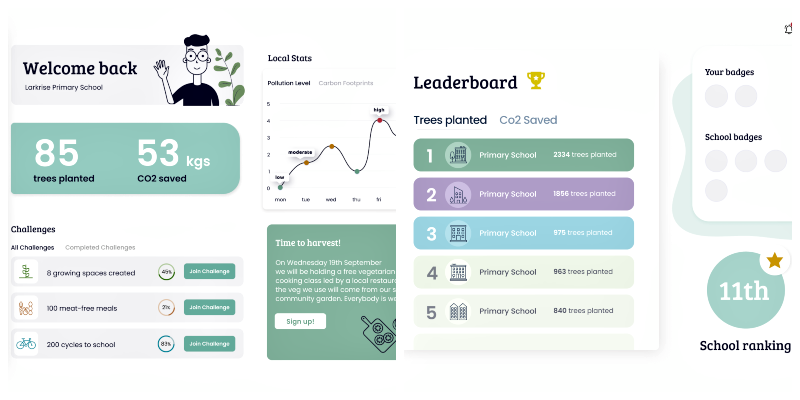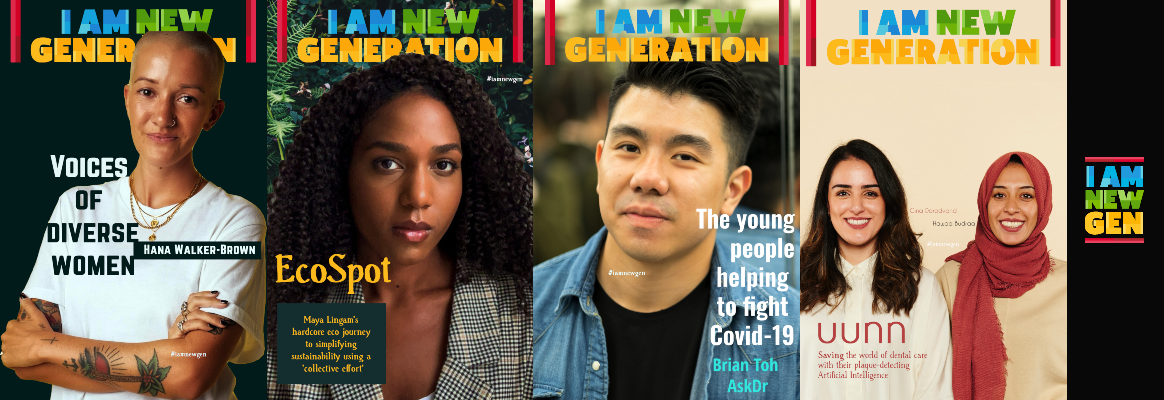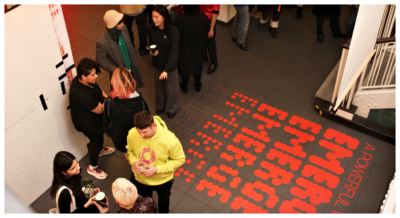We are often bombarded with messages about reducing our carbon footprint and leading more sustainable lives but it can be difficult to know where to start.
Maya Lingam, founder of early-stage startup EcoSpot has used her personal experiences to design a solution.
She explains: “The idea for EcoSpot came about a year ago when I was working for a tech startup. I was on a launch team to work in New York, which was super exciting.
“I would never have called myself a hardcore eco warrior by any means, but I’m part of a very environmentally aware generation. I was flying about every four weeks and soon thinking that I didn’t feel good about how often I got on planes.”
Lingam, who is 22 years old and UK-based, began seeking ways to make up for the environmental damage her frequent flying caused.
“There was nothing for an ordinary person to have to be able to understand their carbon footprint. I track my credit score, I track minutes of mindfulness, I track my steps. But there was no product [for sustainability],” she says.
Last September, Lingam and her co-founder left their jobs and focused on EcoSpot full-time.
Its main focus was originally a carbon footprint calculator but has since evolved into a platform for organisations to reduce emissions and engage their communities with sustainability.
“Initially, this was a product for people to use on their own. But over the last few months, we’ve had more businesses interested in using EcoSpot,” she says.
“I also realised individuals needed to see that other people are trying to do their part for the planet too for their contribution to feel significant.
“Then coronavirus hit and with lockdown in place, the impact of collective behavioural change really hit home. We decided to pivot and build EcoSpot for organisations.”

The pivoted company is a hub where community members can measure their carbon footprints, share and explore sustainability and take part in challenges.
Lingam says: “These are shared goals and require us all to do a little bit to help. For example, a school might use EcoSpot and set a challenge for families to cook 200 meat-free meals in a month. We’re focused on sustainable action that is easy to implement but impactful at scale, so it sticks.”
The new features are still in the build phase but the ultimate plan is to develop hyper-local hub that likeminded people can turn to for sustainability advice and recommendations, as well as networking opportunities.
Lingam explains: “There aren’t short-term solutions to the climate crisis. Behavioural change is essential, but we realise that this is hard. EcoSpot uses gamification and social features to keep communities engaged with sustainability and focuses on a collective effort.
“The behaviour we encourage through the platform has benefits that go beyond sustainability. For example, switching to a renewable energy provider or renting clothes instead of buying saves you money, as well as helping save the planet.”
EcoSpot’s also helps incentivise people to make sustainable choices by planting trees when they reach a goal.
Users must work together to achieve these and can see how they rank compared to other organisations using EcoSpot.
Lingam says: “For the tree planting, we have partnered with Eden Reforestation Project. They’re planting trees in Mozambique, Madagascar and Indonesia. When the community meets the goal then we will plant trees for the number of people that completed that goal.”

Connecting and inspiring people to fight climate change through collective action is a core part of EcoSpot’s mission.
As a young, black woman Lingam feels climate activism isn’t inclusive enough. She recalled attending an Extinction Rebellion (XR) protest and noticing a distinct lack of diversity.
“Protest is important, but changed behaviour is better. I have to say I’ve never been a massive fan of XR. I find its activity dividing, particularly as someone who is black and working class. I went to one of its protests and felt pretty uncomfortable.
“We need as many people ready to tackle climate change as possible; climate action being seen as a middle-class hobby isn’t helping that.”
XR’s protests may command attention but more data-led approaches can also be effective. Getting organisations to provide practical solutions for their communities, employees or residents to become more sustainable is key.
Lingam wants EcoSpot to build trust between the public and businesses, and for all involved to clearly see action is being taken in a transparent and collective way.
Organisations don’t want to be accused of greenwashing and they’re facing pressure to reduce carbon emissions.
The public will follow when organisations lead the way, says Lingam. “EcoSpot makes it easy for any group of people to transition to sustainability,” she adds.
Returning to her experience of becoming more eco-conscious, Lingam says: “For me sustainability doesn’t have to mean extremes, 100 people making small changes and showing another 100 people how to do the same, is much more impactful than a couple of us living perfect zero-waste lifestyles.”
Written By: Tola Onanuga – a freelance journalist and editor covering a range of topics including technology and race issues – @Tola_o
Images Copyright: Interviewee / Unsplash / I Am New Generation Magazine
More Stories
The 10 Things You Need To Know About Building A Low-Carbon Startup
The young people, around the world, helping to fight Covid-19











